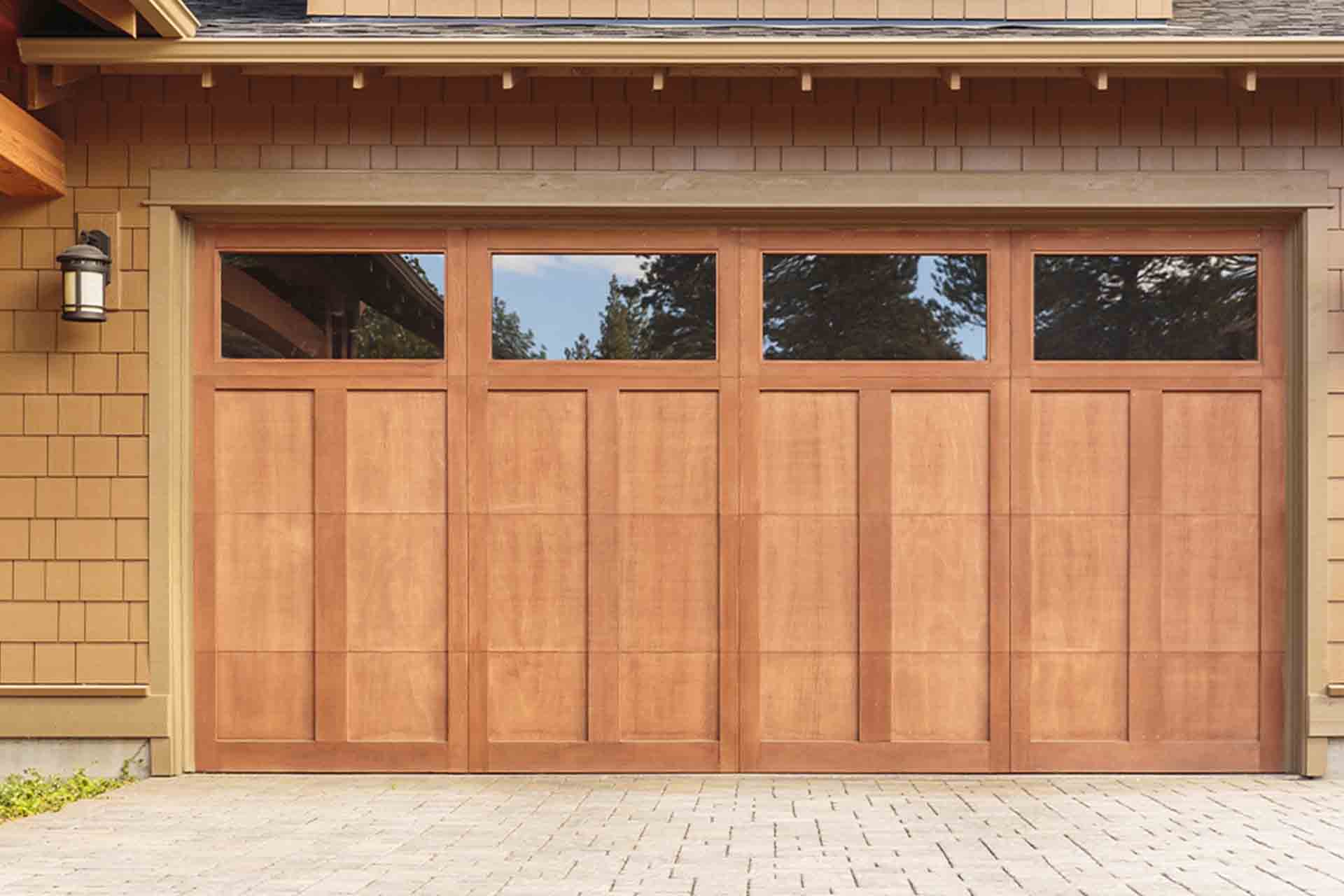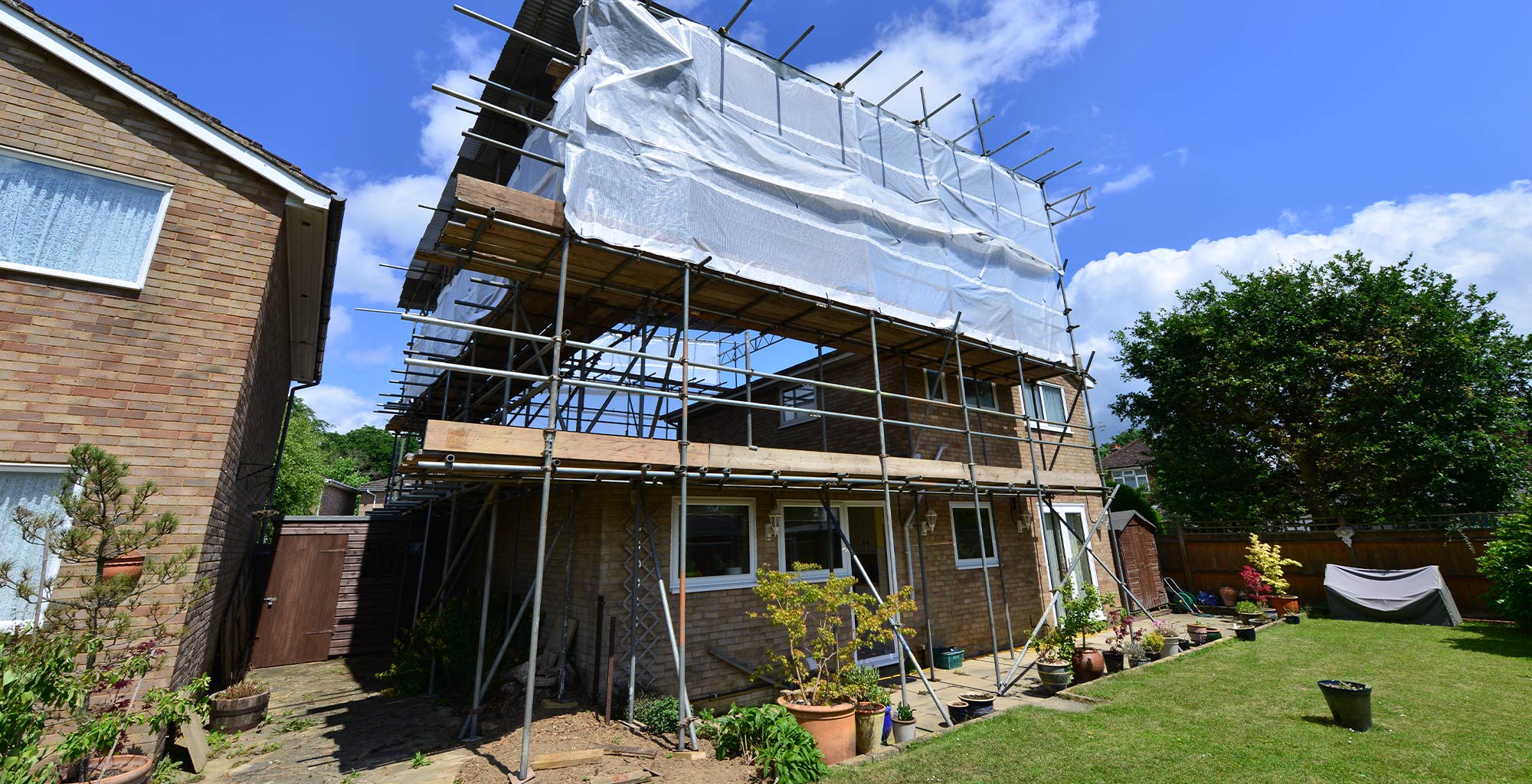Blog>Expert Advice>14 home improvements that don't need planning permission
Last updated: 30 April 2024
14 home improvements that don't need planning permission
There are so many ways you can improve your home that don't need formal planning permission. Find out what home improvements you can get started on that fall under permitted development (PD).
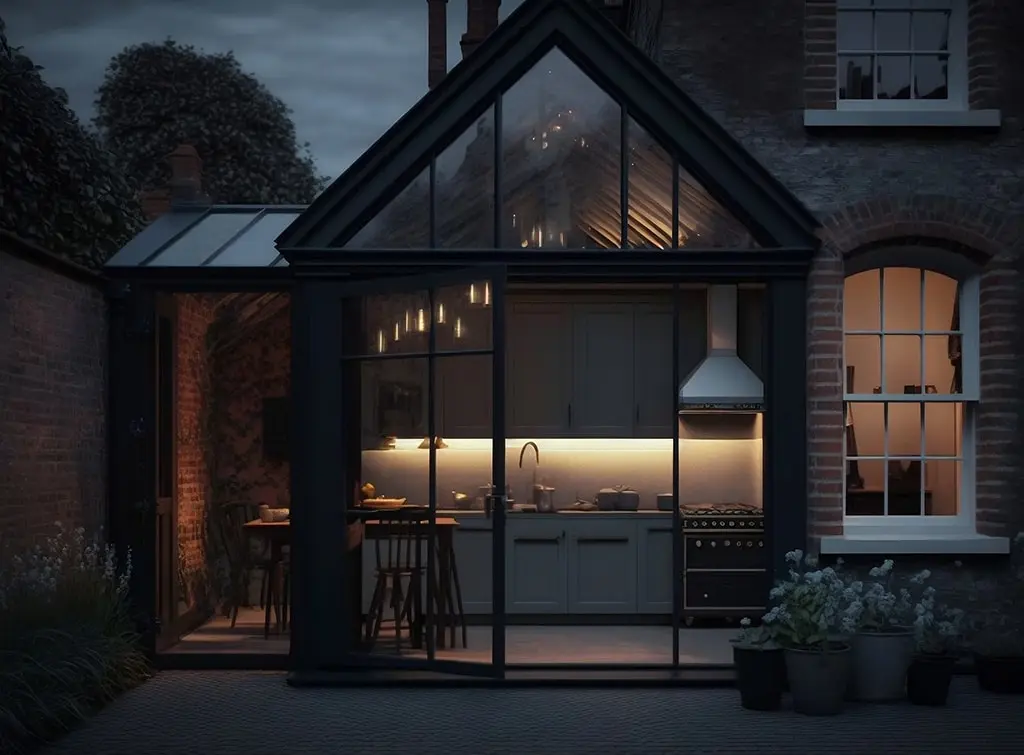
Home improvement excitement can crumble with the thought of planning permission. But, there are actually lots of jobs you can do without planning permission.
By renovating under permitted development rights, you can maximise your home's potential without applying for planning. Upgrade your home, find more living space, and add value without having to complete all of the paperwork.
Read on to learn all about home improvements that don't need planning permission.
See the tradespeople we've checked and recommend for your job
Permitted development explained
For major renovations, two-storey extensions, or new builds, you will most likely need planning permission from your local planning authority.
But, many home improvement projects don't need planning permission. Under permitted development rights, you can make extensive changes to your home - inside and out.
You'll still need to own your property freehold and make sure the building work meets specific criteria. For example, extensions and loft conversions must be a maximum of a certain size.
But the list of home improvements that do not fall under planning regulations is extensive.
Take a look at our permitted development guide for more information.
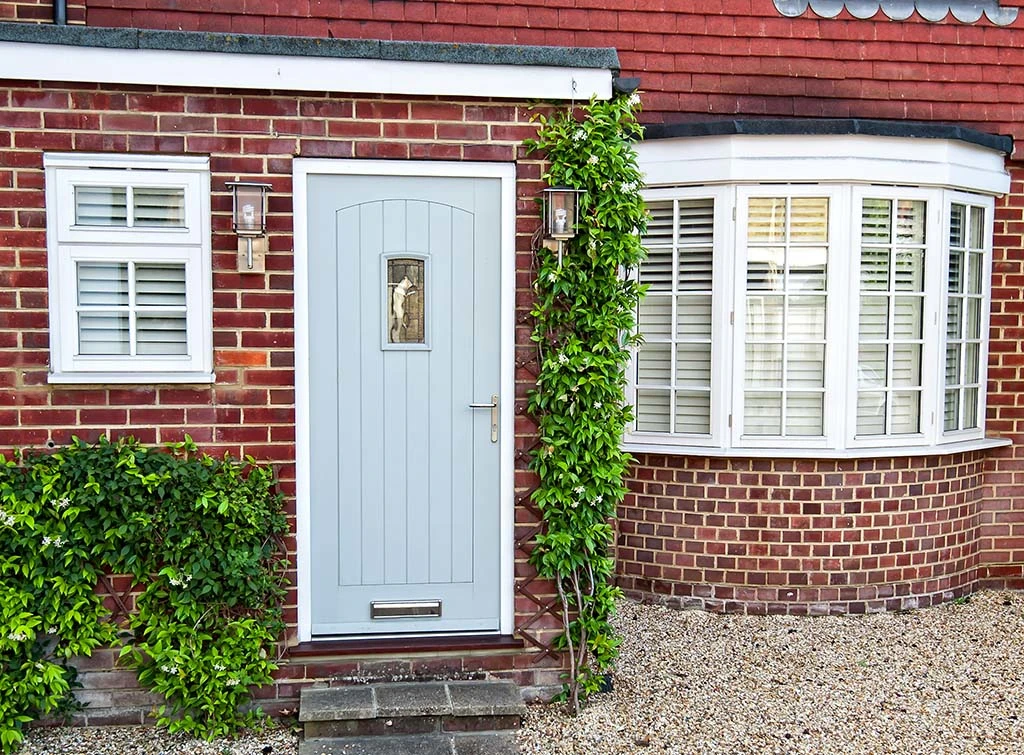
Can you renovate a house without planning permission?
Yes, you can renovate a house without planning permission.
If unsure, check with your local planning authority to see if your home renovations comply. Your local planning authority will tell you if planning permission is required for any or all of your projects.
You can also apply for a lawful development certificate to be doubly sure.
When permitted development rights are not permitted
Always check if permitted development applies before beginning any major home projects.
Permitted development doesn't usually apply to:
World Heritage sites, conservation areas, or national parks
Flats and maisonettes (because they fall under a leasehold agreement)
Some new builds (check your deeds or past planning documents)
Always check with your local council or ask an architect for more advice.
See the tradespeople we've checked and recommend for your job
14 home improvements that don't need permission
Doing work in your home is a great way to enlarge, elevate and enjoy your home.
Get inspired with our list of 14 of the most popular home improvements that don't need permission.
1. Build a single-storey extension
You can extend your home to the rear or side without planning permission. But, this usually only applies to single-storey extensions.
To build a ground floor extension without planning permission, make sure:
Materials match the existing property
Side extensions only go up to half the width of the original building
Your extension stays within 50% of your garden fence
It is within three metres from the original building (four metres for detached homes)
Considering an extension? Get advice from a builder near you.
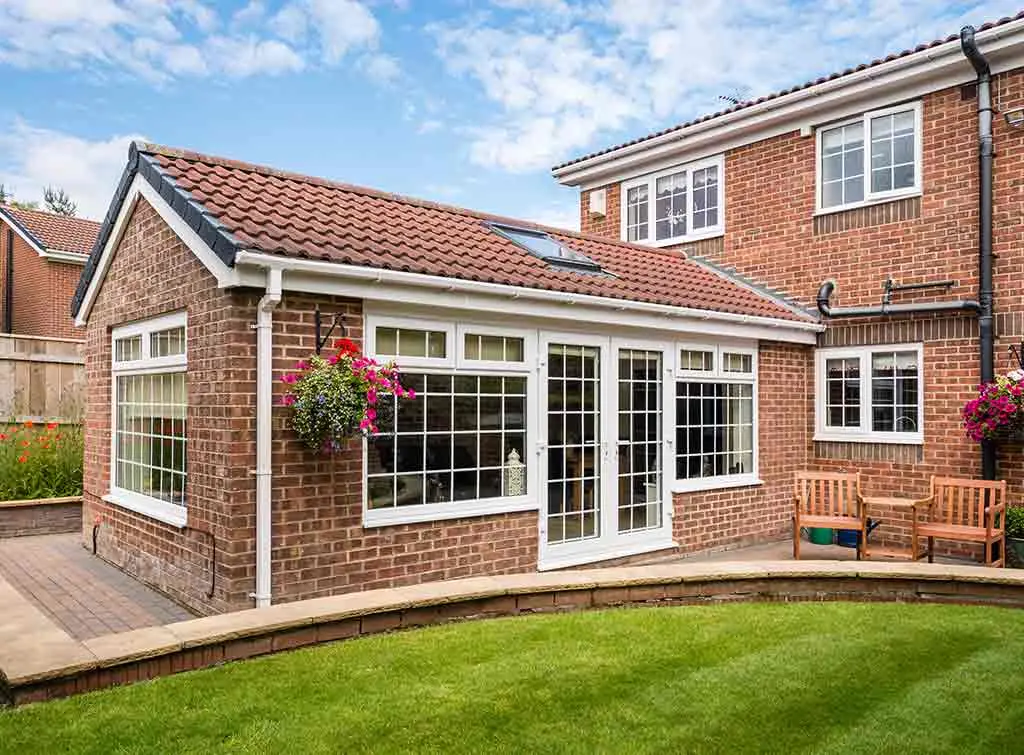
2. Convert your garage
A garage conversion can add huge flexibility to your home. You can use it as an extra bedroom, home office, or garage gym.
Usually, you won't need planning permission for a garage conversion.
But, you can only convert the interior of your garage and not enlarge it in any way (including the roof). Also, check that any new windows don't look into the windows of neighbouring properties.
Find a garage conversion specialist.
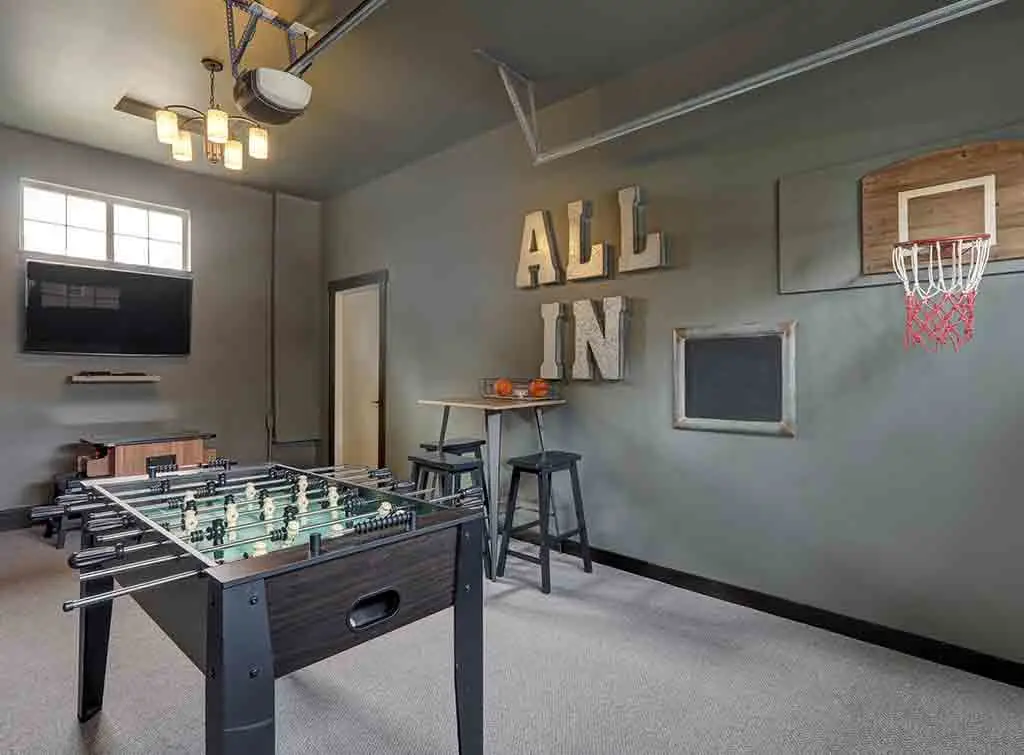
3. Add a conservatory or sunroom
Adding a conservatory or sunroom gives your home natural light and extra space.
You don't need planning permission for either. However, your new conservatory or sunroom must not exceed the max height of four metres (or three metres within a two-metre boundary) and should not negatively impact your neighbour.
Find conservatory installers near you.
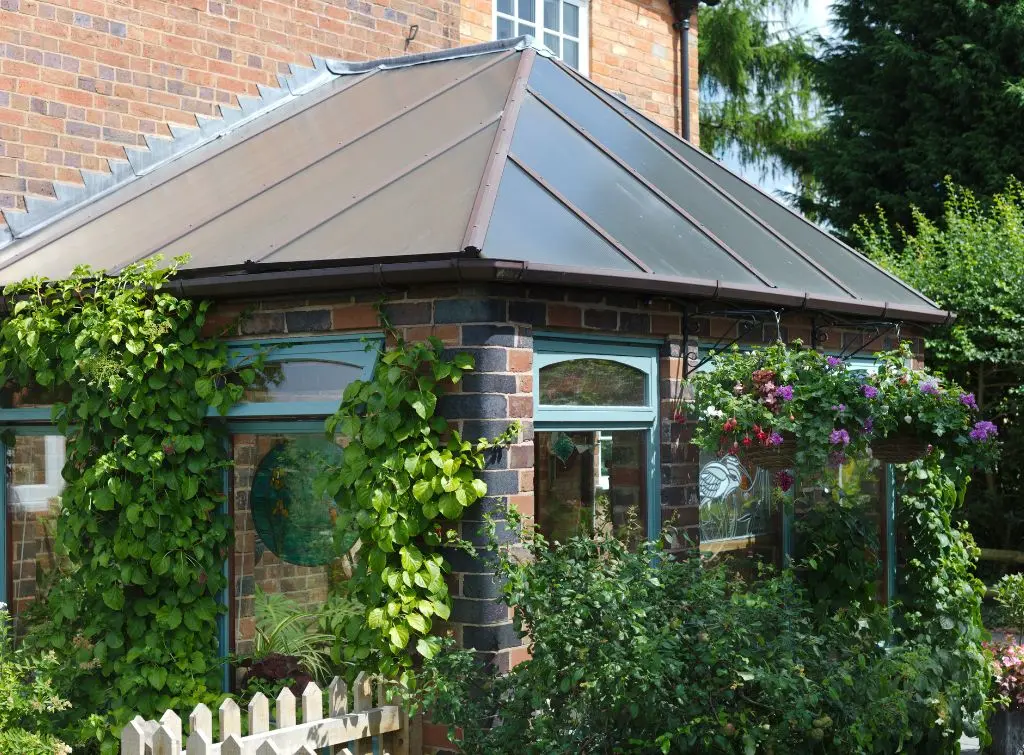
4. Elevate with a loft conversion
A loft conversion can add functional living space and extra floor space.
A loft conversion doesn't usually require planning permission, whether you want an extra bedroom, home gym, home office, or T.V. room.
But make sure you stay within the building limits and match the building materials. You can also convert your loft into a non-habitable loft conversion.
Read our guide to loft conversion planning.
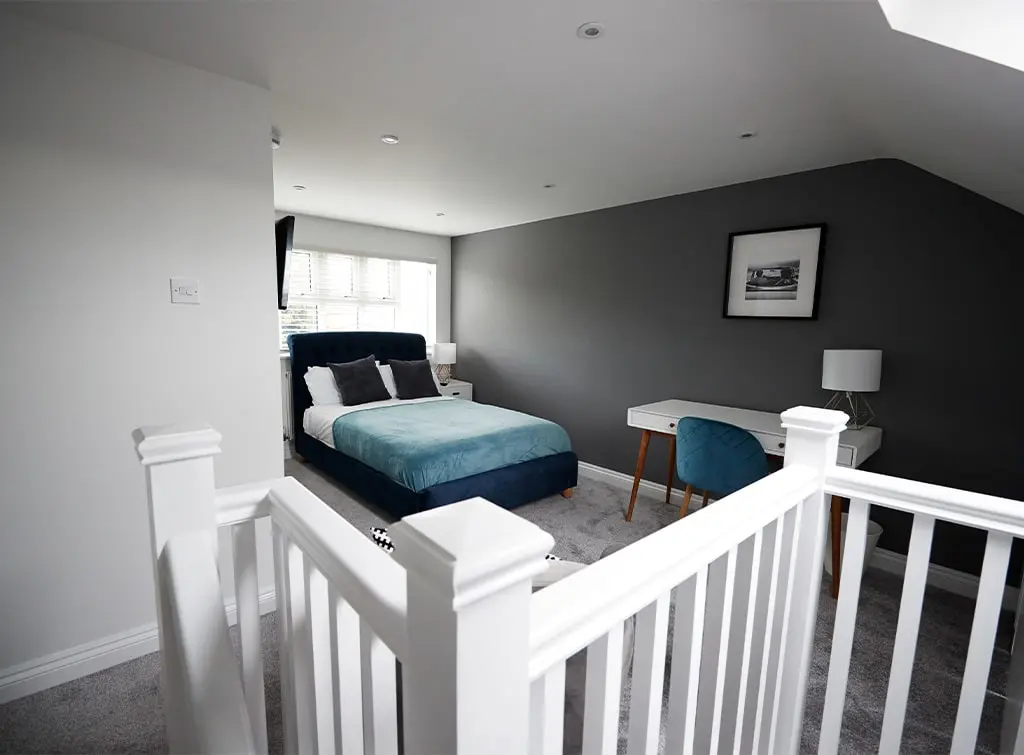
See the tradespeople we've checked and recommend for your job
5. Upgrade your kitchen
One surefire way to add value to your home without planning permission is to renovate your kitchen.
For many families, the kitchen is the heart of the home. So, even the simplest upgrades can make a difference in prepping family dinners or making more room for appliances.
Get started with our full kitchen renovation planning guide.
Or, find a kitchen installer near you for more advice.
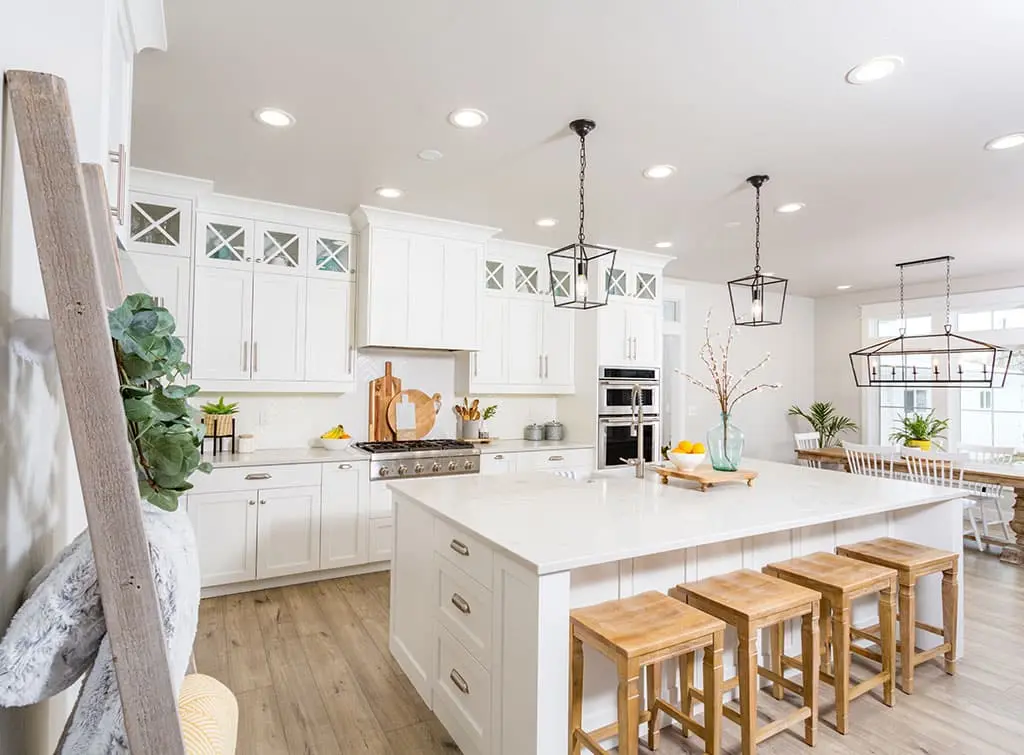
6. Add a porch
Adding a porch is a great way to make your home look clean and tidy.
Not only is a new porch functional, but it's also an easy and relatively budget-friendly home improvement project. Plus, you can choose from any form of porch or roof.
However, make sure your porch stays within two metres from any boundary and is no taller than three metres.
Find out how much it costs to build a porch.
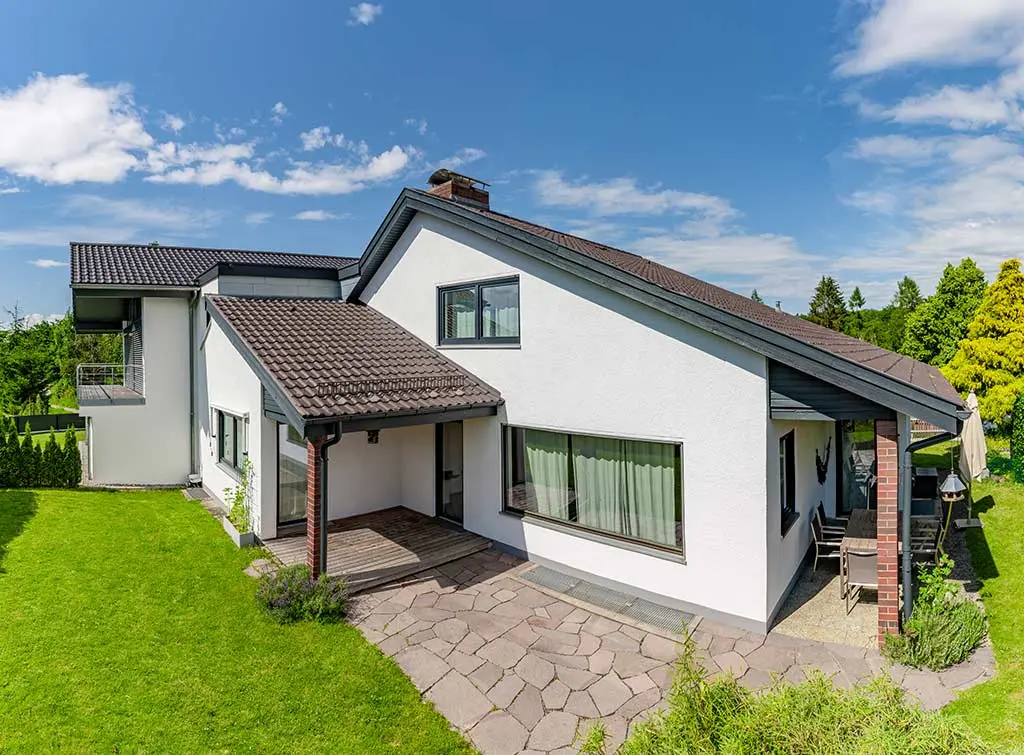
7. Replace your roof
Upgrading your roof can improve your home's weather resistance, energy efficiency, and overall appearance. Under permitted development, you can replace worn-out tiles or your roof covering entirely.
You can even do it with a different material or add skylights for natural light.
But, alterations can be no more than 150mm from the existing plane. This should give enough room for a layer of external insulation.
Find out how much it costs to replace your roof.

8. Renovate your bathroom
Besides knocking on your neighbour's door to give them a heads up about the noise, you don't need planning permission to beautify your bathroom.
You can replace everything, including the bathroom suite, sinks, toilet, fixtures, and flooring, or a small, budget-friendly bathroom glow-up might be more suitable.
It's a great way to brighten up and modernise your bathroom.
Find out how much a new bathroom might cost you.
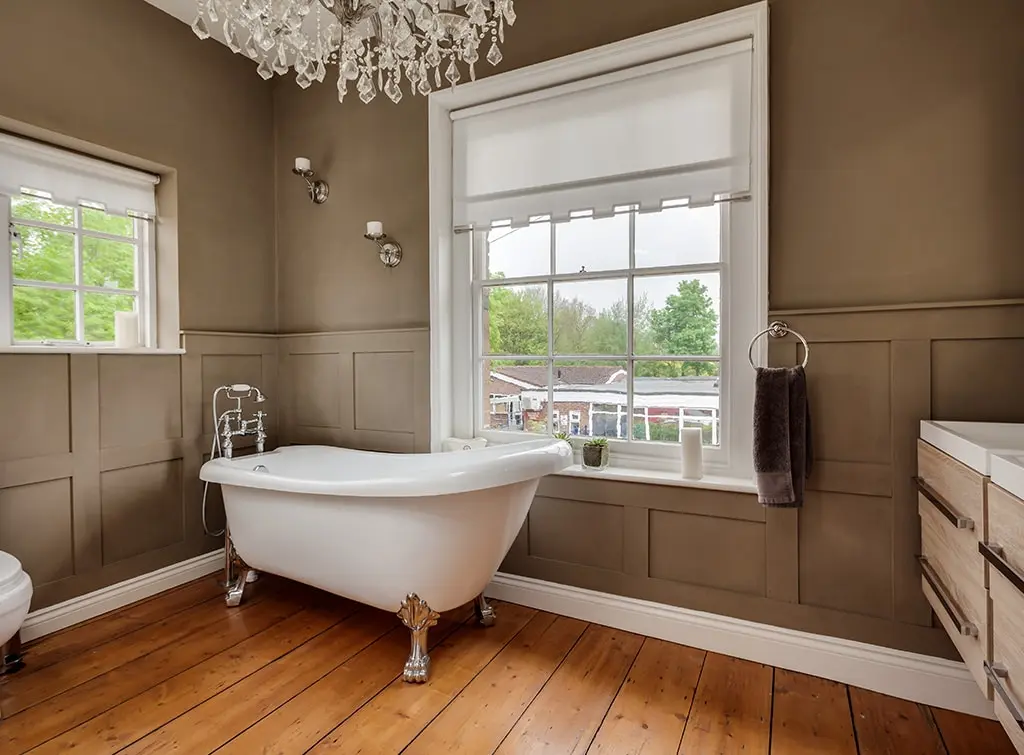
9. Upgrade your decking and patio areas
Create a usable outdoor space in winter to enhance your home's functional floor space.
Installing or upgrading your decking or patio is a great start. It will create an ideal dining, entertaining, relaxing, or play area.
With heating or shade, like a pergola, you can make your outdoor area usable most of the year.
Check out our decking vs patio cost guide to see which is right for you.
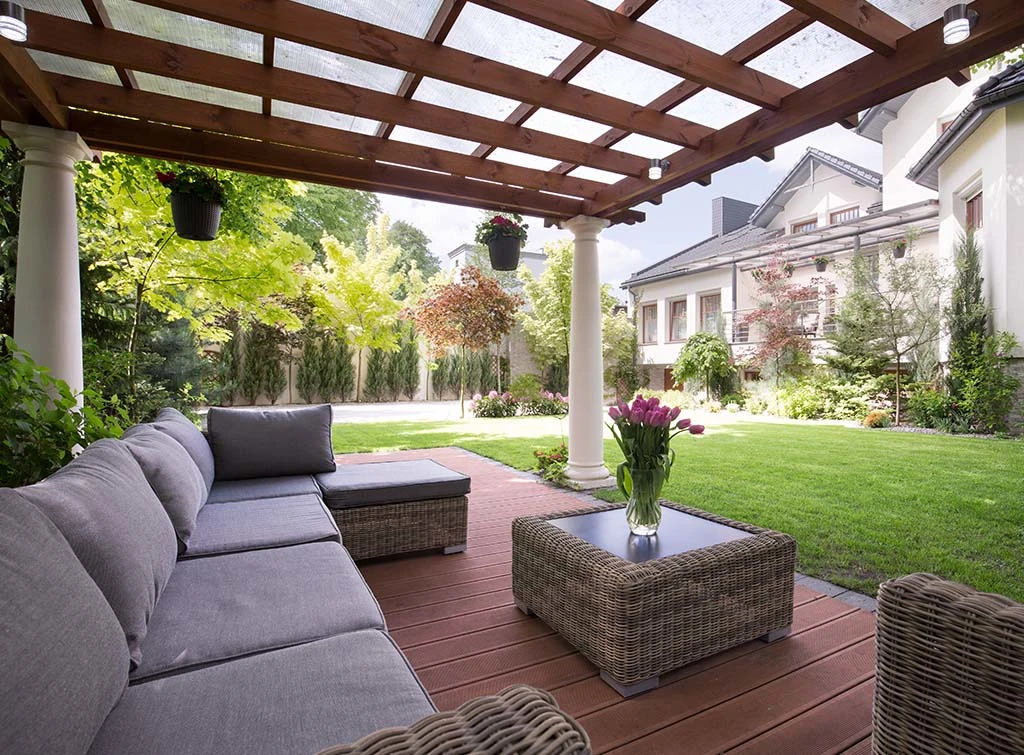
10. Do some interior remodelling
You can drastically improve the appearance and useability of your home with interior remodelling.
Remodel your interior by knocking down walls to create an open-play layout or adding partitions to separate your space.
Always check with a local builder if you plan on removing walls, as they may be load-bearing, and a support may need to be installed.
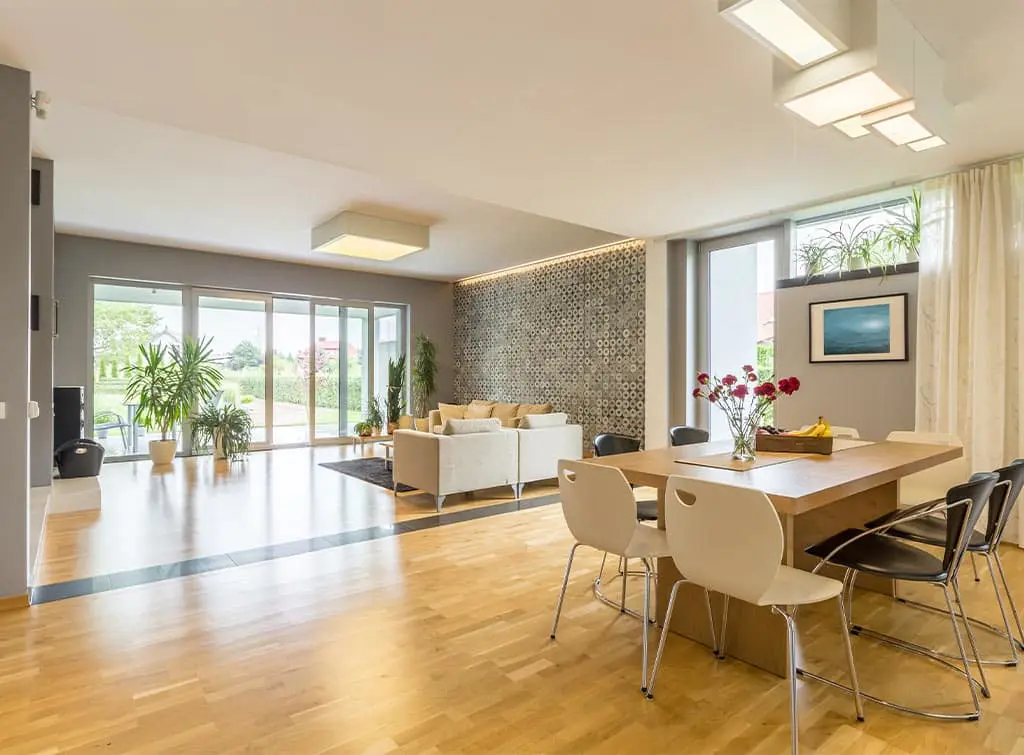
See the tradespeople we've checked and recommend for your job
11. Boost your basement
Don't extend up; extend down. Converting your basement is a top way to add more room to your home.
If you currently have a lower-ground space, convert this into a usable basement without planning permission.
Make your basement a T.V. room, guest bedroom, storage space, or log store.
But, if you don't currently have a basement space and plan to excavate the space, you'll need planning permission.
A local planning consultant will be able to help.
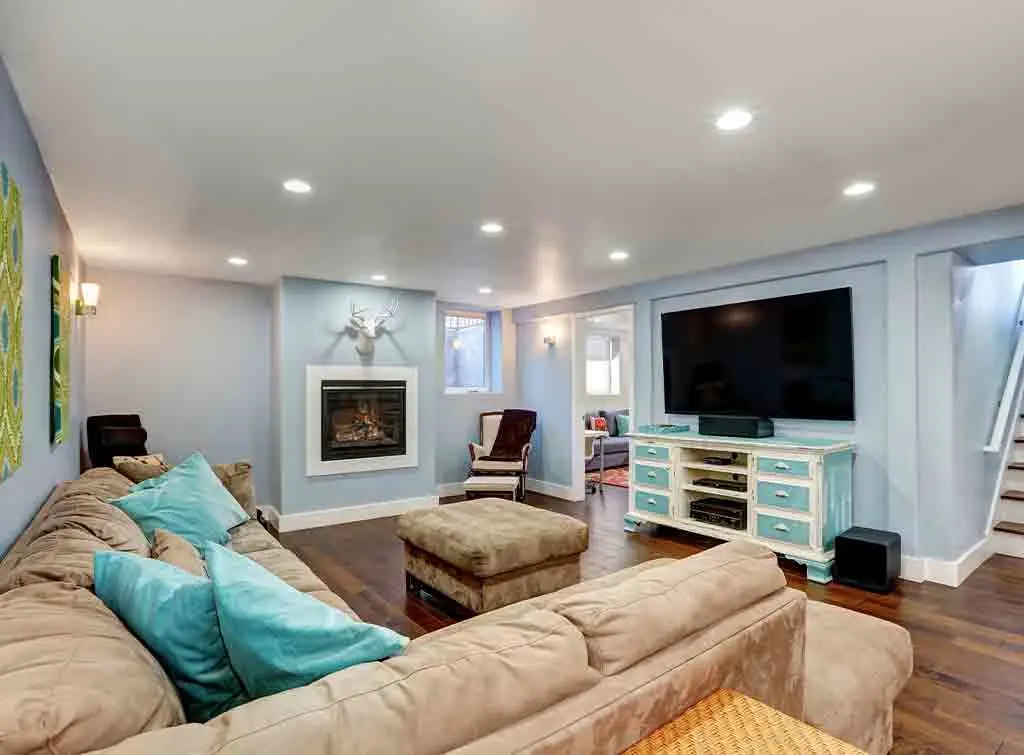
12. Replace or repair your windows
Replace or repair your windows to improve your home's energy efficiency, ventilation, and natural light.
You can repair or replace your current windows as long as the appearance of your house isn't materially altered.
If you're replacing a window on the side of your home that looks into your neighbour's property, go for obscured glazing. Also, be aware that bay windows are considered extensions.
Find out which windows and doors are the most energy-efficient.
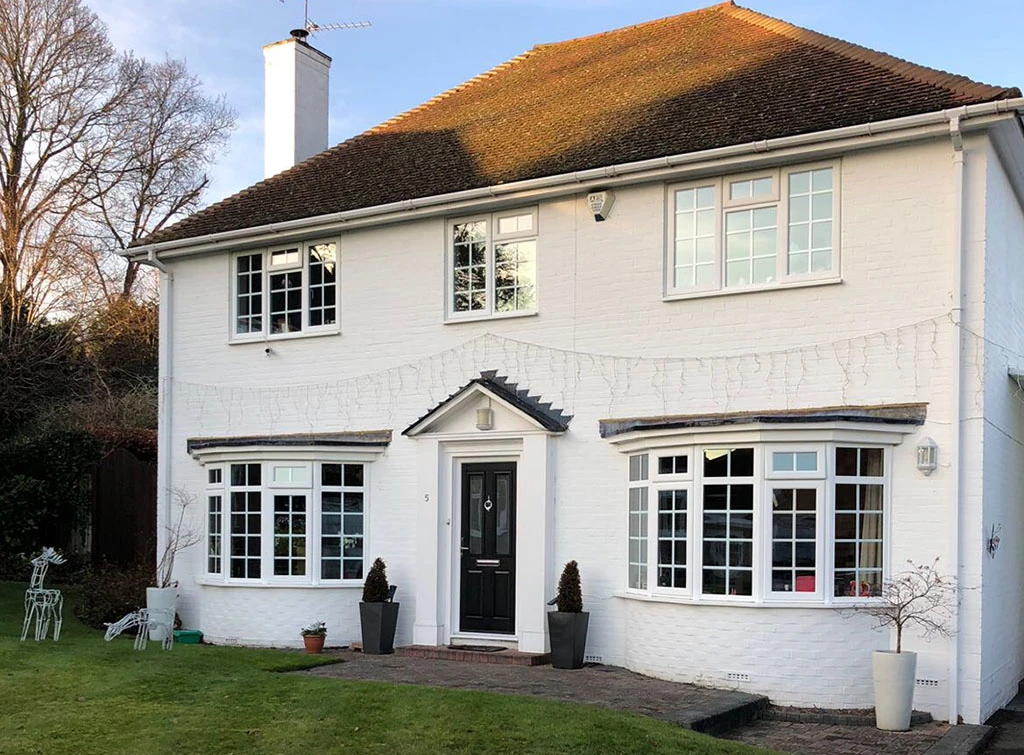
13. Improve energy efficiency with solar panels
Good news - the installation of solar panels sits under permitted development rights.
Solar panels are a great way to future-proof your home and save you money on electricity bills.
Solar panels will need to be installed below the highest part of the roof covering and within 200mm of the roof plane.
Look for solar panel installers for more advice.
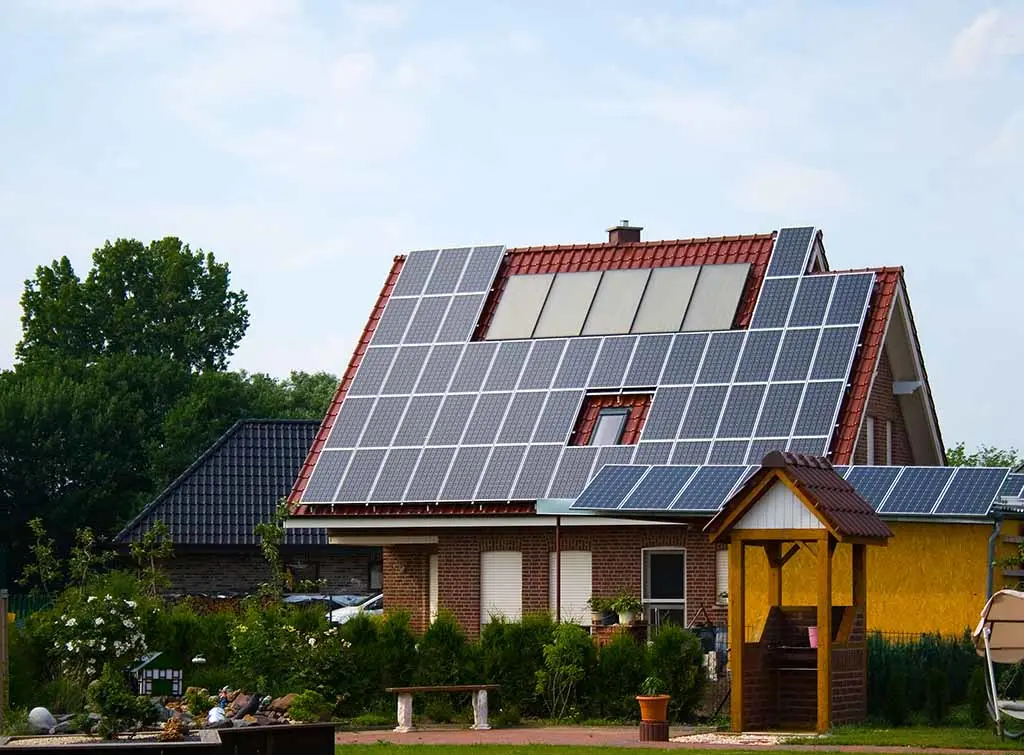
14. Give your home an exterior makeover
Another great way to revitalise your home without planning permission is to give it an exterior makeover.
A simple upgrade can add curb appeal or value to your home. You could:
Render the outside of your home
Repaint the facade
Install a new front door
Add lighting to your steps
Overhaul your garden landscape
Add gates, fencing and walls for extra privacy and security (as long as they fall within the allotted height restrictions)
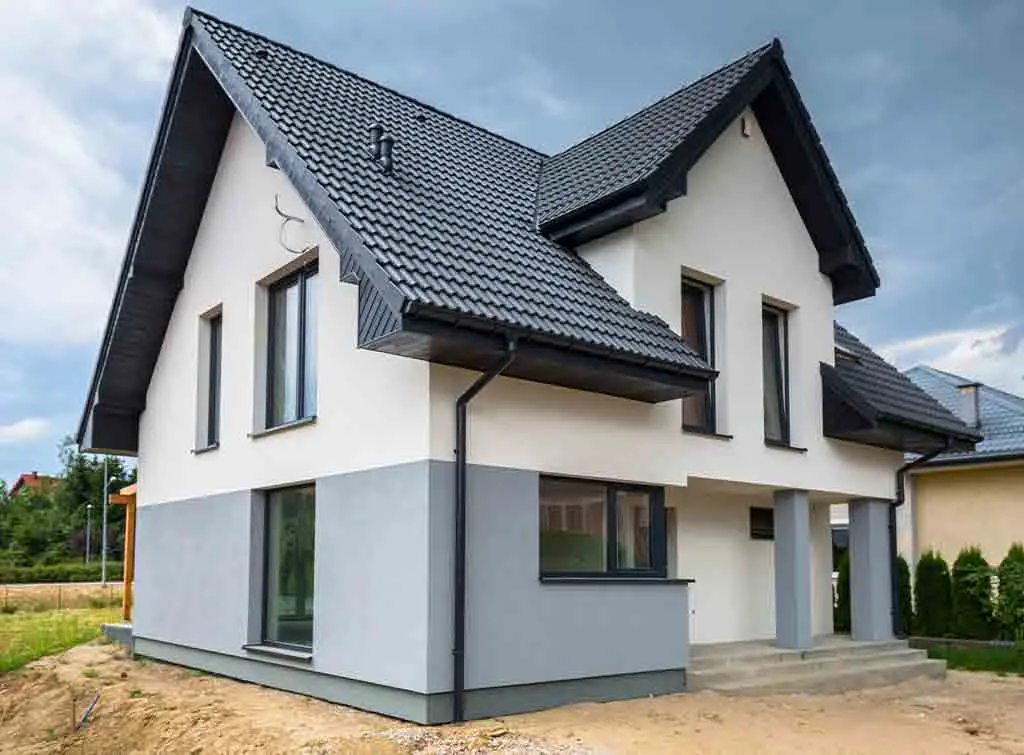
Find a trade near you
Speak to a professional today to discuss the projects you'd like to do in your home.
Whether it's an architect, planning consultant, builder, or extension specialist, our professionals can tell you if you need planning permission.
Pop your postcode in the box below for a list of your area's top-rated professionals.
See the tradespeople we've checked and recommend for your job
More Expert Advice Articles
See the tradespeople we've checked and recommend for your job



